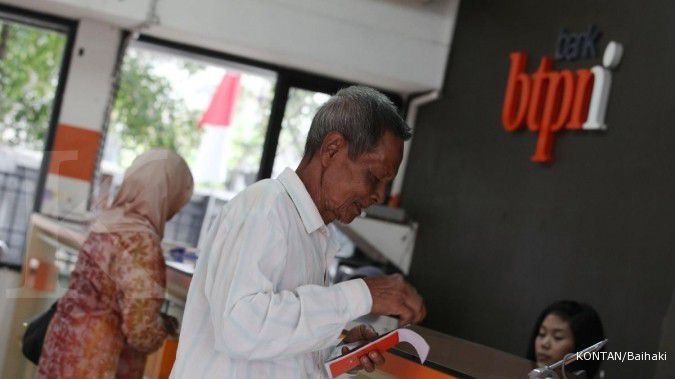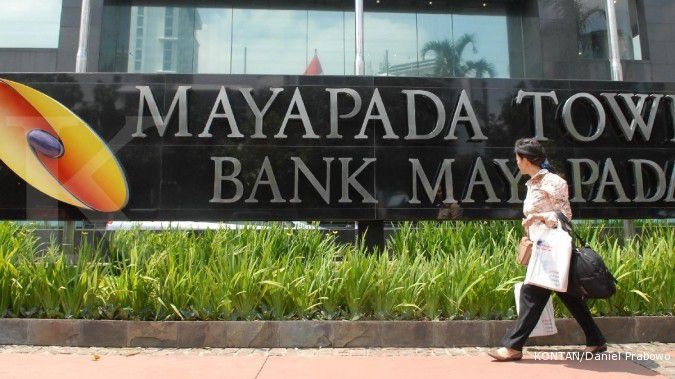JAKARTA. Representatives of major international banks have strongly opposed a new banking bill that will limit the freedom they have enjoyed for decades in Indonesia, which implements one of the most liberal banking systems in the world.
Speaking during a hearing with Commission XI, which oversees banking, at the House of Representatives (DPR) on Wednesday evening, representatives of the foreign banks said that if the legislators approved the restrictions imposed on foreign banks, it might backfire on local banks and at the same time bring unpleasant repercussions for the Indonesian economy in general.
Among those taking part in the hearing were senior executives of foreign banks including Citibank, ANZ, JPMorgan Chase, HSBC, Bank of Tokyo-Mitsubishi UFJ and Standard Chartered.
JPMorgan Chase senior country officer for Indonesia, Haryanto T. Budiman, said that the drafting of the bill was influenced by a “strong push from state-owned banks”, as indicated by the inclusion of the reciprocal principle in several clauses of the bill, which might restrict the operations of foreign banks.
State banks, especially Bank Mandiri, have openly urged the government to introduce the so-called reciprocal principle, which means that Indonesia should implement barriers similar to those imposed on Indonesian banks overseas.
The controversy surrounding the new banking bill centers on two salient points that are seen as specifically targeting the operations of foreign banks here: The obligation for foreign banks operating here under branch status to become limited liability companies, known as perusahaan terbatas (PT), and the plan to limit the foreign ownership of banks to a maximum of 40 to 49 percent, from the current 99 percent.
“In our opinion, the two suggestions will not solve the so-called reciprocity predicament and will hamper the growth of the banking industry itself,” Haryanto told lawmakers.
He warned that if the law obliging all foreign banks to become PTs was passed into law, then banking authorities overseas might try to even the score by imposing more barriers on Indonesian banks.
At present, Indonesian state-owned banks such as Bank Mandiri, Bank Rakyat Indonesia (BRI) and Bank Negara Indonesia (BNI) operate under branch status in countries such as the US, UK, Singapore, Malaysia and Japan.
To be able to operate as fully-fledged banks, they would have to become limited liability companies with increased capital.
Haryanto said that if Indonesia restricted the operations of foreign banks, these countries might force Indonesian banks to upgrade their status to limited liability companies or leave if the banks were unable to meet the requirements.
During the hearing, Standard Chartered economist Fauzi Ichsan argued that compelling foreign banks to become PTs would downgrade the rating status of foreign banks in line with Indonesia’s sovereign rating, consequently driving up costs for foreign exchange (forex) loans for infrastructure projects in the country, most of which are supplied by foreign banks.
On the issue of ownership limits preventing foreign banks from acting as majority shareholders, representatives of foreign banks claimed that this would expose them to potential liquidity shocks occurring in Indonesia.
“If we became PTs and something bad happened here, our headquarters overseas would not be able to step in to help us by injecting additional liquidity because, in legal terms, the two would be separate,” Citibank Indonesia chief country officer Tigor Siahaan explained.
Nevertheless, members of the commission were not too impressed with the arguments of the foreign bankers, with lawmakers perceiving them as merely complaining without providing concrete suggestions.
“We understand the concerns voiced by local bankers — which are lagging behind in terms of technology and capital — and we want this new law to support them and level the playing field between us and other banking systems overseas,” said commission member, lawmaker Kemal Azis Stamboel.
He added that there was a strong need for Indonesia to ring fence its banking sector, which is considered as far too liberal despite its status as one of the world’s most profitable and fastest-growing markets. (Satria Sambijantoro)
/2012/01/29/2033157269.jpg)














